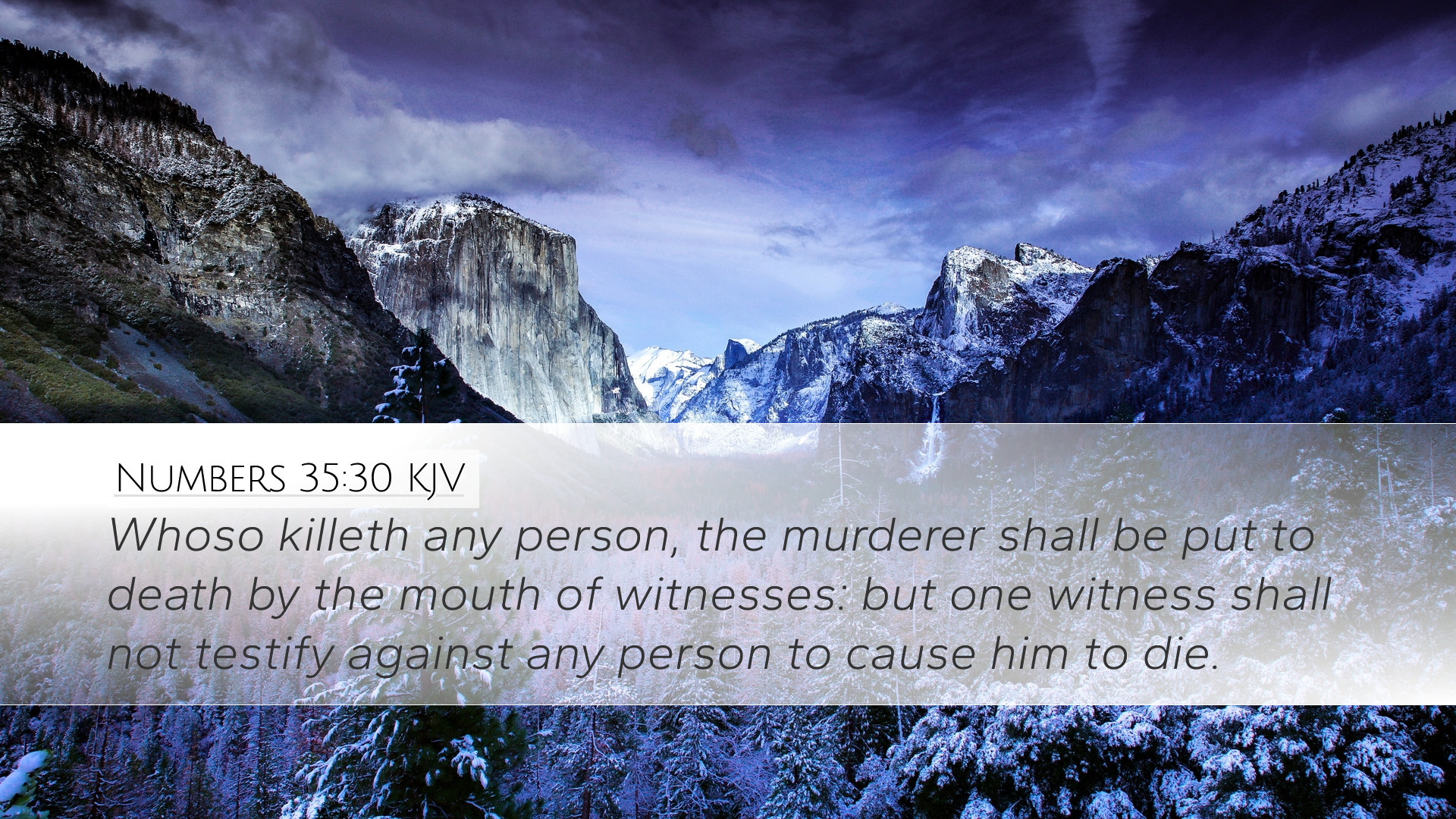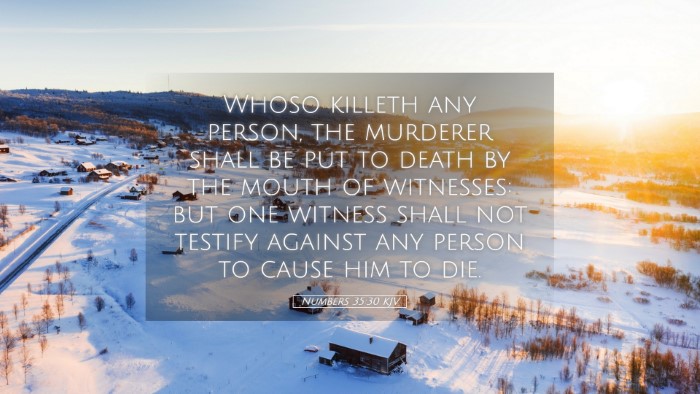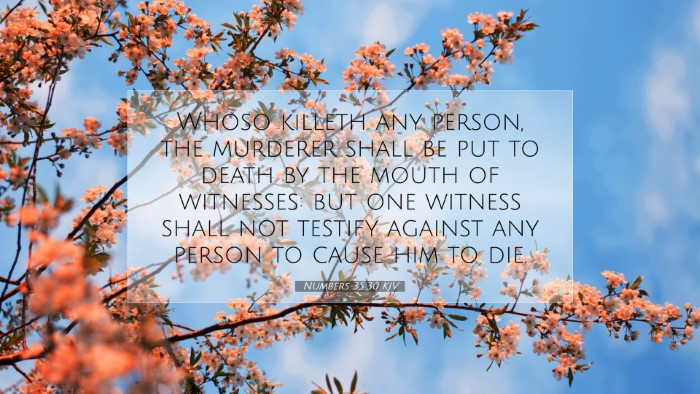Commentary on Numbers 35:30
Numbers 35:30 states: "Whoever kills a person, the murderer shall be put to death on the testimony of witnesses; but one witness is not sufficient testimony against a person for the death penalty."
Introduction
This verse is part of the legal code given to the Israelites, illustrating the importance of justice and due process in the nation of Israel. Here, we reflect on the sanctity of human life and the weight of witnessing in judicial matters.
Historical Context
The context of Numbers 35 involves the cities of refuge established for those who accidentally kill another. The laws outlined in this chapter aim to ensure that justice is administered fairly, emphasizing God's desire for order and righteousness within the community.
Exegesis of the Verse
Meaning of 'Murder'
Matthew Henry notes that the term 'murderer' here implies unlawful killing with malicious intent, distinguishing it from accidental killing. This highlights the gravity of premeditated actions and the need for a clear judicial process to address such sins.
Testimony of Witnesses
Albert Barnes emphasizes the critical role of witnesses in administering justice. The requirement for multiple witnesses underscores the seriousness of capital punishment; one person's testimony is not sufficient to convict and execute another. This reflects a commitment to safeguard against wrongful convictions, indicating the value of corroborated evidence in judicial proceedings.
Capital Punishment
According to Adam Clarke, this verse affirms that capital punishment serves a dual purpose: it acts as a deterrent against heinous crime and as a means of executing divine justice. Clarke stresses that while it is a severe consequence, it is needed in light of the crime of murder, which violates the sanctity of human life, created in the image of God.
Implications for Society
The standards set forth in this verse also have implications for modern society. Henry remarks that these principles advocate for careful consideration in discernment and judgment, urging current leaders and judges to heed the lessons from biblical law concerning the sanctity of life and the processes of earthly justice.
Theological Reflections
The Nature of Justice
This verse prompts deep theological reflection on the nature of justice and mercy. Barnes asserts that while justice demands accountability, mercy must temper it. The balance between these attributes of God is indicative of His character, inviting believers to seek wisdom in their judgments and actions.
Witnessing as a Spiritual Principle
The principle of requiring multiple witnesses can be expanded into a spiritual application. In the New Testament, believers are called to be witnesses for Christ (Acts 1:8). This, as per Clarke, highlights the importance of shared testimony in the faith community, encouraging mutual accountability and truth among believers.
Application in Ministry
For pastors and ministers, Numbers 35:30 provides insight into preaching about justice and personal responsibility. It presents an opportunity to discuss the importance of integrity and the consequences of sin while offering the grace found in Christ for those who repent. Henry suggests that leaders should guide their congregations in understanding the severity of sin, paired with the mercy available through faith in Jesus.
Concluding Thoughts
As we consider Numbers 35:30, we recognize that the call to justice remains vital in both ancient and modern contexts. The safeguarding of human life and the equitable administration of justice reflect God's heart for humanity. Pastors and theologians alike are encouraged to remember the weight of testimony and the sanctity of life as they engage with their communities.
Summary
- This verse underscores the necessity of multiple witnesses in capital cases.
- Human life is deemed sacred, requiring a serious judicial process against those who commit murder.
- God calls His followers to pursue justice while embodying mercy.
- Ministers should use this teaching to promote integrity, accountability, and deeper spiritual witness in their congregations.


